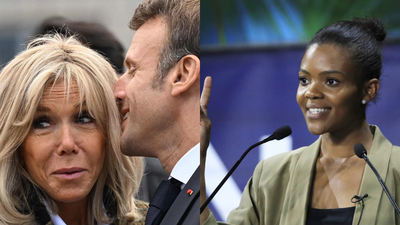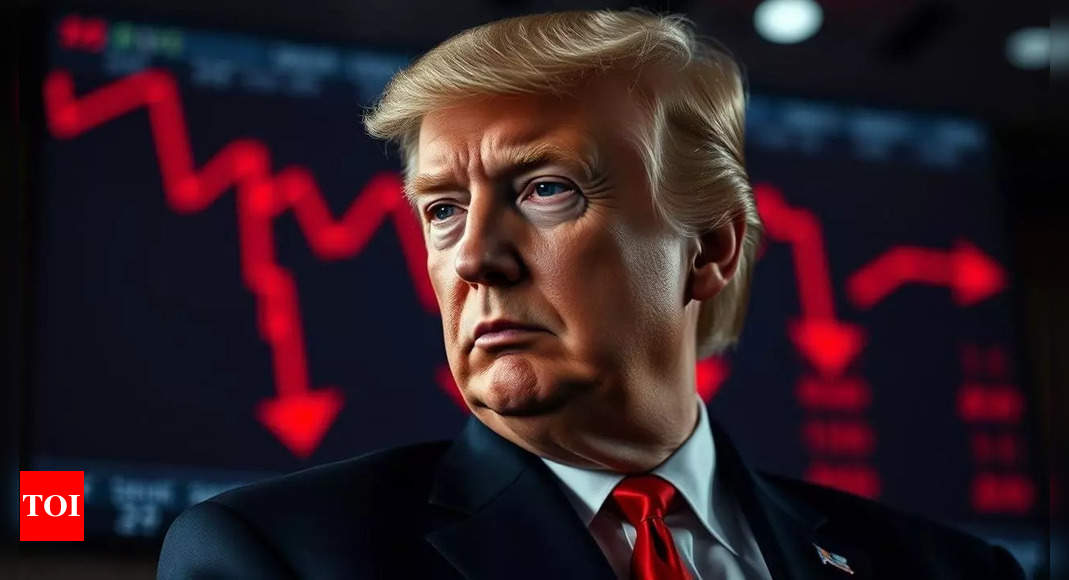In a move that has drawn widespread criticism and intensified scrutiny of her rhetoric, conservative commentator Candace Owens has endorsed a discredited conspiracy theory about Brigitte Macron, the wife of French President Emmanuel Macron. Owens, a prominent figure in conservative circles, claimed that Brigitte Macron was born male and transitioned to female, a baseless assertion that has been widely debunked.
The conspiracy theory originates from a French publication, Faits et Documents, which falsely alleged that Brigitte Macron was born as Jean-Michel Trogneux, her brother’s name. This claim, entirely unsupported by credible evidence, has circulated in fringe online spaces but gained traction after Owens’ public endorsement. Speaking on her podcast, Owens stated, “I would stake my entire professional reputation on the fact that Brigitte Macron is in fact a man.” This declaration has sparked outrage, with many accusing Owens of spreading harmful and transphobic rhetoric.
Origins and Spread of the Theory
The theory’s origin lies in an article published in 2021 by Faits et Documents, a magazine known for promoting conspiracy theories and sensationalist stories. The article claimed that Brigitte Macron assumed a false identity after transitioning and used selective photographs and unverifiable anecdotes to support its assertions. French authorities and legal experts have dismissed the claims as defamatory and false, and Brigitte Macron herself has taken legal action against individuals propagating the rumor.
Despite the lack of credible evidence, the conspiracy gained traction on social media, particularly in far-right and conspiracy-theory circles. Owens’ endorsement added fuel to the fire, amplifying the theory’s reach to her millions of followers and sparking heated debates online.
Widespread Condemnation
Critics from across the political spectrum have condemned Owens for promoting the theory. Advocacy groups have labeled her comments as irresponsible and transphobic, warning that such rhetoric contributes to the stigmatization of transgender individuals and the spread of harmful misinformation.
President Emmanuel Macron and Brigitte Macron have both addressed the rumors publicly. President Macron remarked on the dangers of misinformation, stating, “The worst thing is the false information and fabricated scenarios that undermine trust and spread hatred.” Brigitte Macron has also decried the theory, describing it as a violation of her dignity and a reflection of the darker side of social media.
Owens’ History of Misinformation
This is not the first time Owens has been criticized for spreading falsehoods. Over the years, she has built a reputation for making controversial and unsubstantiated claims. During the COVID-19 pandemic, Owens repeatedly downplayed the severity of the virus, promoted unproven treatments, and questioned the efficacy of vaccines, despite overwhelming scientific evidence to the contrary. Her comments contributed to misinformation about the pandemic, which public health experts have said undermined efforts to combat the virus.
Owens has also propagated conspiracy theories about the 2020 US presidential election, claiming widespread voter fraud despite a lack of evidence and multiple court rulings affirming the election’s integrity. These claims have been linked to heightened political polarization and the January 6 Capitol riots, an event Owens has downplayed.
In 2022, Owens faced backlash for comments about the Uvalde school shooting, in which she suggested that the tragedy was being used to push a political agenda. Critics accused her of insensitivity and exploiting a national tragedy for partisan purposes.
The Broader Impact of Misinformation
The controversy surrounding Owens’ remarks highlights the broader issue of misinformation in the digital age. With social media platforms serving as echo chambers, unfounded claims can gain traction quickly, often with damaging consequences. Experts warn that such misinformation not only targets individuals but also undermines public trust in institutions and exacerbates societal divisions.
The theory about Brigitte Macron, for example, is emblematic of how baseless rumors can escalate into international controversies, fueled by prominent figures like Owens who lend them an air of legitimacy. The resulting harm extends beyond the immediate targets to the broader public discourse, perpetuating stereotypes and promoting division.
Calls for Accountability
Advocacy groups and media watchdogs have called for greater accountability for public figures who spread misinformation. Organizations like the Anti-Defamation League and GLAAD have urged social media platforms to take stronger action against users who propagate falsehoods, particularly those that incite hatred or discrimination.
In France, legal action remains a critical tool for combating defamatory claims. Brigitte Macron’s legal team has pursued lawsuits against those spreading the conspiracy, a move seen as a broader effort to hold individuals accountable for perpetuating falsehoods.




